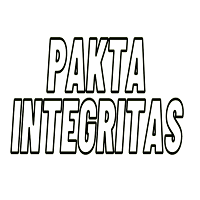THE CORRELATION OF MOTHER’S KNOWLEDGE AND ATTITUDE WITH BREASTFEEDING PRACTICES IN TULANG BAWANG BARAT DISTRICT AT 2021
DOI:
https://doi.org/10.47522/jmk.v4iIAHSC.124Keywords:
Attitude, Dominant factor, Exclusive breastfeeding, KnowledgeAbstract
Introduction:Breast milk is a liquid formed from a mixture of two substances, namely fat and water contained in a solution of protein, lactose and inorganic salts produced by the mother's breast glands, and is useful as baby food. Mother's knowledge and attitude in exclusive breastfeeding plays an important role in increasing the growth and development of children. The purpose of this study was to determine the relationship between the level of knowledge (cognitive factors) and attitudes (affective factors) of mothers in the practice of exclusive breastfeeding in Tulang Bawang Barat District in 2021.
Method: This research is a quantitative research, with a cross sectional approach. The population in this study were all mothers who had babies > 6 months-12 months as many as 2285 with samples taken as many as 93 respondents. The object of this research is exclusive breastfeeding, knowledge and attitude. The research was conducted in June 2021 in the District of Tulang Bawang Barat. Collecting data using a questionnaire, data analysis is univariate, bivariate and multivariate.
Results: The results showed that there was a relationship between knowledge (p value = 0.016, OR = 3.264), and attitudes (p value = 0.001, OR = 7.848) towards exclusive breastfeeding in Tulang Bawang Barat District in 2021. Dominant factors related to exclusive breastfeeding in Tulang Bawang Barat District in 2021, namely the attitude with a p-value of 0.000 OR 10.197.
Conclusion: The dominant factor related to the practice of exclusive breastfeeding in Tulang Bawang Barat is the attitude of the mother. To improve the attitude of mothers in the Practice of Exclusive Breastfeeding, the Health Office needs to carry out health promotions with a more frequent frequency by using more attractive health promotion media in collaboration with the health promoter team at the puskesmas.
References
Devriany, A. 2018. Perbedaan Status Pemberian ASI Eksklusif terhadap Perubahan Panjang Badan Bayi Neonatus. Pangkalpinang.
Hartatik, T. 2009. Hubungan Pengetahuan Dan Sikap ibu Dengan Pemberian Asi Eksklusif Dikelurahan Gunungpati Kecamatangunungpati Kota Semarang Tahun 2009. Unnes.
Ilhami, M.F. 2015. Hubungan Tingkat Pengetahuan Ibu Tentang Asi Eksklusif Dengan Tindakan Pemberian Asi Eksklusif Di Puskesmas Kartasura. UMS.
Kemenkes RI. 2010. Riset Kesehatan Dasar (RISKESDAS) 2010. Kemenkes RI, Jakarta.
Pertiwi, P. 2012. Gambaran Faktor-Faktor Yang Mempengaruhi Pemberian ASI Eksklusif Di Kelurahan Kunciran Indah Tangerang. Fakutas Ilmu Keperawatan Universitas Indonesia.
Potter dan Perry. 2009. Fundamental Keperawatan. Edisi 7. Salemba Medika, Jakarta.
Rahman, N. 2017. Pengetahuan, Sikap, Dan Praktik Pemberian Asi Eksklusif Di Wilayah Kerja Puskesmas Jumpandang Baru Kecamatan Tallo Kota Makassar. Universitas Hasanuddin.
Sjawie, W. A. 2019. Hubungan Antara Pengetahuan Dan Sikap Ibu Dengan Pemberian Asi Eksklusif Di Wilayah Kerja Puskesmas Tuminting Kota Manado. Manado.
Septiani S., Budi A., Karbito. 2017. Faktor-Faktor yang Berhubungan dengan Pemberian ASI Eksklusif oleh Ibu Menyusui yang Bekerja sebagai Tenaga Kesehatan. Pascasarjana Kesehatan Masyarakat Stikes Mitra Lampung.
Wowor, M. 2010. Hubungan Pengetahuan Dan Sikap Dengan Pemberian Asi Eksklusif Pada Ibu Menyusui Di Puskesmas Bahu Kota Manado. Manado.
Downloads
Published
How to Cite
Issue
Section
License
Copyright (c) 2021 Jurnal Mitra Kesehatan

This work is licensed under a Creative Commons Attribution-NonCommercial-ShareAlike 4.0 International License.
Jurnal Mitra Kesehatan memberikan akses terbuka terhadap siapapun agar informasi pada artikel ini dapat bermanfaat bagi orang banyak. Jurnal dapat diakses tanpa dipungut biaya, sesuai dengan lisensi creative commons yang digunakan.










